Moving to New Zealand
Situated on the other side of the world from the UK, moving to New Zealand might be the step to give you a completely new and exciting lease on life. With unique geography, fascinating history, and incredible landscapes to be discovered, there is no shortage of things to enjoy. Spoilt for choice, people can explore mountains, lakes, beaches and forests, all without lifting off the ground.
While many core values are typically shared between the people of New Zealand and the UK, there are likely countless questions to ask before making any big decisions, which is sensible before embarking on an international relocation. Many expats enjoy the more laid-back pace of life in New Zealand. If that sounds like something you’d enjoy, read on to find everything you need to know about moving to and living in New Zealand.

Orientation
New Zealand is made up of multiple landmasses, including the North Island, South Island, and around 700 smaller islands. It might surprise readers to know that New Zealand only has a population of around 5,130,080, despite a landmass almost 20,000 square kilometres larger than the UK, which has a population of over 65 million. The majority of this population resides in urban areas, meaning that rural areas are often home to far more sheep than human beings. So far away from the UK, New Zealand’s timezone of GMT+12 can make it difficult to keep in touch with loved ones around the globe.
Despite being just 2,000km east of Australia, these two countries are not to be confused, with vast differences in culture, geography, and history. First settled by Polynesians around the 1300s, the distinctive Māori culture has run through the blood of New Zealand since the beginning, despite the majority of the modern population descending from subsequent European settlers from the Netherlands, UK, and other countries. Today’s New Zealanders enjoy a highly developed country in terms of quality of life, education, economic freedom, and gender equality.
Learning the Language
If you are moving to New Zealand from the UK, you will be glad to learn that English is one of the official languages of the country, along with Māori, the language of the country’s first settlers. The Kiwi accent can sound like a mixture of other countries, including Australia, America, and South Africa. It is nevertheless easy to communicate as a Brit in New Zealand, taking into account certain slang words in common usage, including:
- Glad wrap (cling film)
- Togs (swimsuit)
- Chur (thanks)
- Jandals (flip flops)
- Dunny (toilet)
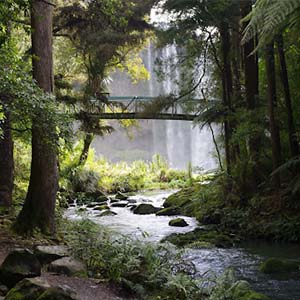
Passports and Visas
In order to promote the continuation of the economic growth in New Zealand, there are immigration policies in place that make it compulsory to present a valid visa. There is a range of different visa types to suit different circumstances, from visitors to retirees.
When choosing your visa for moving to New Zealand, you’ll need to take several factors into account, including length of stay, whether you have a job offer, and if you wish to bring your family. Some popular visa types for those looking to live and work in New Zealand are the working holiday visa, work to residence visa and skilled migrant visa.
You can find out more about the different visa types and how to apply on the New Zealand Govt website.
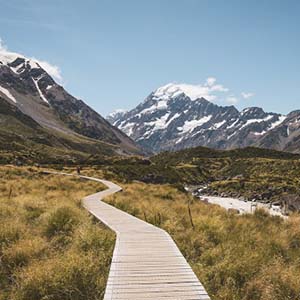
Customs Requirements for New Zealand
When moving to New Zealand with your household and personal items, there are unlikely to be any challenges for everyday belongings. Like every country, there are certain restricted items, including ivory, meat/food derived from whales or other marine life, cat skins, live species, carnivorous plants, and other items made from endangered animals, like sea turtles and rare reptiles. These items will require a permit to be allowed into the country.
Other items, such as weapons and drug equipment, are prohibited from being imported to New Zealand, so should not be packed into any household shipment or personal luggage. Find more details on the New Zealand Customs website.
Taking your pets to New Zealand with you
When moving from the UK, cats, dogs and chinchillas with correct permits and vaccinations are allowed to enter New Zealand so that the unique ecosystems of the country are protected and preserved. Animals will have to enter the country at Auckland or Christchurch so that necessary quarantine may be carried out.
Before entering customs, your pet should be accompanied by the correct documentation, which includes a proof of purchase, import permit, veterinary certificates, Air Waybill, NZCS 231 Bringing a Pet or Other Animal into NZ, a copy of your passport, and an Exempting Statutory Declaration for dogs. Learn more about the requirements for importing pets and animals into New Zealand on the customs website.
Bringing vehicles into New Zealand
If you are moving to New Zealand for a longer period of time, it might be the case that you wish to bring your personal vehicle with you. There are strict regulations in terms of emissions and safety guidelines which your car must comply with before being imported. Upon arrival, owners must present documentation proving evidence of inspection, passing a Warrant of Fitness, being right-hand drive, and other factors.
Alternatively, importing a car for a shorter period of time, under 12 months, duty and tax are often waived so long as the vehicle is covered by a Carnet de Passage. Bear in mind that any application could take months to process, so ensure that this is done well in advance of you moving to New Zealand.
Exchange and Currency
The official currency of New Zealand is the New Zealand dollar (NZD), represented by the $ or NZ$ symbols, and colloquially called the “Kiwi dollar”. If you are considering a relocation, you may want to familiarise yourself with the exchange rate before analysing the cost of living in New Zealand vs the UK. The economy in New Zealand is strong and developing, after a huge turnaround in the 1980s with a huge transformation into a liberalised free-trade economy.
As this is not a common currency around the globe, you will need to transfer money before arriving in New Zealand. This can be done at most major banks and airports, and also using Gerson’s International Money Transfer service.
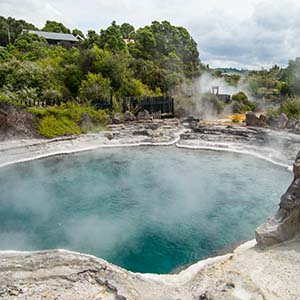
Find a home in New Zealand
A huge part of settling in a new country is finding accommodation that feels like home to you and your family. This can be difficult to accomplish after only being in the country for a short period of time, so initially renting accommodation is a great way to find a more suitable and permanent residence.
For UK residents, it might be relieving to find that New Zealand is not nearly as densely developed as Britain. This means that there is a lot more space, so finding your dream property is not nearly so difficult! Whether you’re after a large family property, space in the city, or more of an outdoor lifestyle, there is a wide range of properties in NZ to choose from.
Like most countries, rental prices tend to increase in the centre of cities. Expats can contact landlords directly or go through real estate agents when looking for property. A tenancy agreement is legally required for rented accommodation, which will confirm your monthly rent payments, which should be kept to if you want to avoid legal action. It is also possible for expats to purchase property in New Zealand, which can take as little as 4 weeks and is considerably less stressful than in other parts of the world.
Getting around New Zealand
The short answer to this question is yes you can bring a pet into Singapore but there are some strict rules on what breeds are allowed and from which countries. If you are moving to Singapore from outside of the UK, Ireland, Australia and New Zealand your pet will have to go through thorough checks and rabies vaccinations. There is also a list of breeds for cats and dogs that are not allowed into Singapore. On top of this, many apartment buildings have strict rules on how many pets you can have and also the size and breed of your pets. For more detailed information, read this guide.
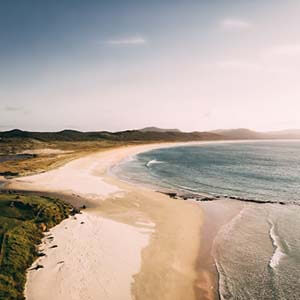
Driving in New Zealand
To legally drive in New Zealand, expats will need a valid driver’s license. In the case that you have been present in New Zealand for less than 12 months and have not been given any suspension, a valid driver’s license from the UK will be valid.
If you are going to be residing in New Zealand for a considerable period of time, it’s recommended to convert your driver’s license to a New Zealand driver’s license. To apply for this new license, you will need to present:
- Filled application
- A valid overseas license
- Proof of suitable eyesight
- Medical certificate
- Application fee
- Copies of all provided documentation
Compared to other countries, traffic in New Zealand tends to be rather light, though rush hours can see considerable traffic at peak times. This means that driving around New Zealand is normally easy for Brits, particularly considering that they drive on the same side of the road. Roads are often long and can vary in quality, which can be surprising for UK expats.
Social life in New Zealand
For expats, New Zealand’s culture of immigration is incredibly welcoming to all cultures. People living in New Zealand enjoy an incredibly relaxed way of life. Schools and workplaces feature an excellent work-life balance, ensuring that enjoyment of life is favoured over over-working.
Life is generally lived outdoors to make the best of the weather and the incredible scenery, so New Zealand is an ideal destination for Brits looking for a more active way of life. With such a range of landscapes, you can find a wide range of activities to get involved with for the whole family.
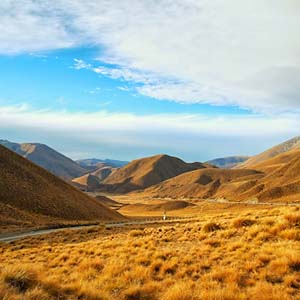
Interested in information on another country? Take a look at our other International Relocation guides.
Great customer Experiences start here
Very pleasent and helpful. Nothing too much trouble.
Mr M H moved from London, UK to Toronto, Canada
Very helpful and patient even when things got packed that we had to get out again!
Mr M E moved from Enfield, UK to Dorset, UK
Thanks to Graham, Nick and the entire crew!
Mr C D M moved from UK to Singapore
Friendly and helpful crew.
Ms T W moved from USA to Cambridgeshire, UK
